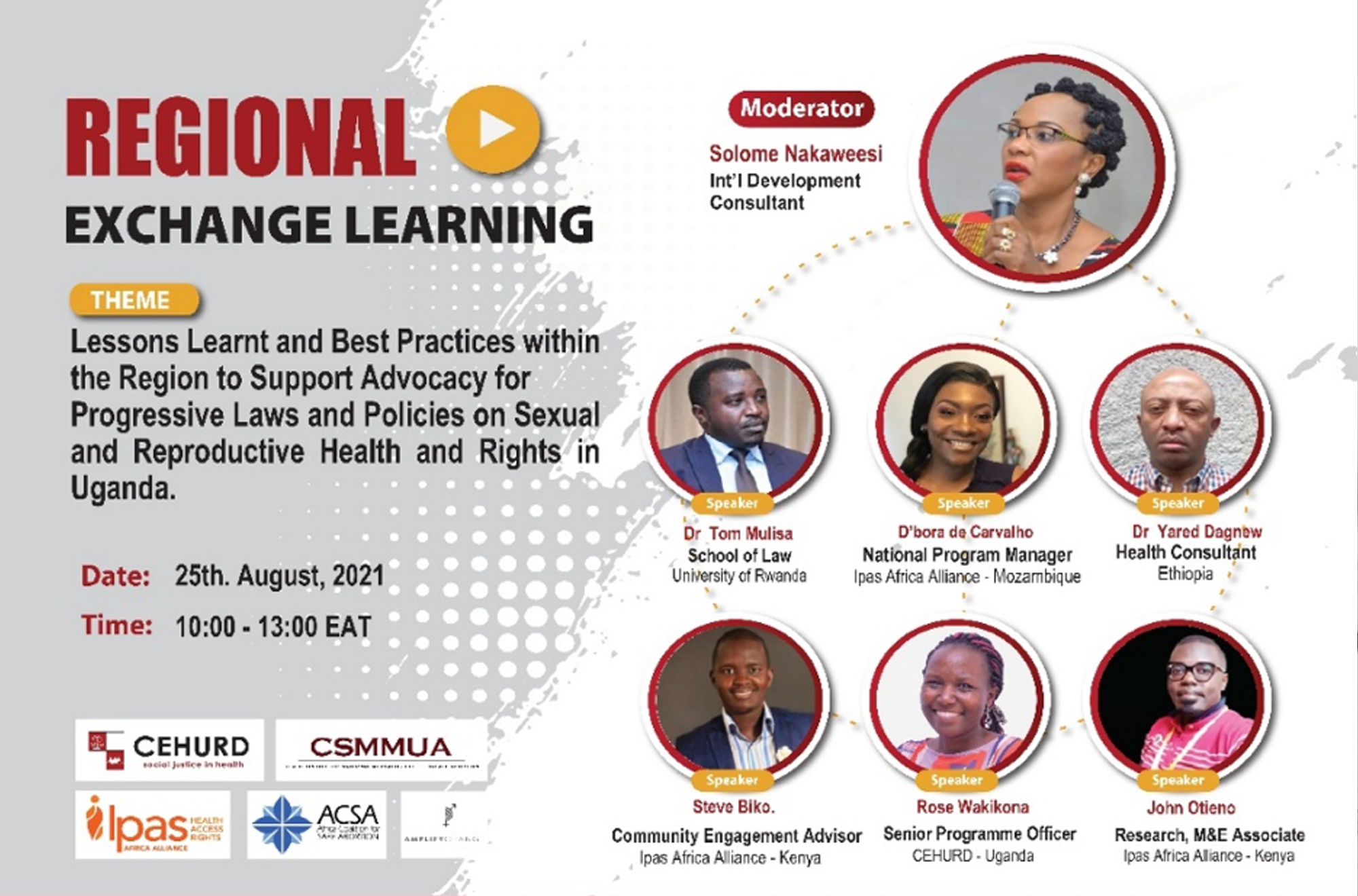
The Center for Health, Human Rights and Development (CEHURD) in partnership with Ipas Africa Alliance under the Africa Coalition for Safe Abortion (ACSA) held a regional exchange learning webinar.
The African Coalition for Safe Abortion (ACSA) is a broad-based coalition of regional health and human rights civil society organizations (CSOs) that are committed to advocate for access to safe and legal abortion services in line with regional human rights standards specifically, the Protocol to the African Charter on Human and People’s Rights on the Rights of Women in Africa (popularly referred to as the Maputo Protocol). ACSA provides a platform for national and regional CSOs to provide support and sustain the African Commission on Human and Peoples Rights (ACHPR) Campaign for the Decriminalization of Abortion in Africa.
The aim of the regional exchange learning webinar was to engage with Sexual Reproductive Health Rights (SRHR) champions from Kenya, Rwanda, Mozambique, and Ethiopia to share strategies used, lessons learnt and best practices that enabled them to achieve progress in the laws and policies on abortion in their countries. The webinar, held on 25th August 2021 convened 70 participants from East, Central and South Africa. Ipas Ethiopia shared the key actors, strategies and lessons learned from the law reform process in 2003. The Ipas Mozambique team shared about the legal reforms done by revising the Penal Code in 2014 and the strategies that CSOs used to have the reform done and implemented through the development of the Standards and Guidelines in Mozambique. The Great Lakes Initiative for Human Rights and Development (GLIHD) on the other hand, discussed the continued advocacy for the revision of the Penal Code and expansion of the law to provide abortion access in 2012 and in 2018. Lastly, Ipas Africa Alliance showcased interventions on the medical abortion self-use (MASU) work done in Kenya, highlighting the need to develop policies and guidelines for the provision of medical abortion services.
At the conclusion of the two-hour session, participants concluded that:
- Inter-country learning on law reform and decriminalization is a key advocacy strategy that can be emulated.
- Funds permitting, benchmarking visits as was done by Ethiopia to South Africa and in Rwanda to Ethiopia should be adopted.
- The use of evidence-based advocacy needs to be enhanced as this was a key strategy that was used in Rwanda by GLIHD in partnership with Ipas Global on the number of ladies imprisoned for accessing safe abortion services.
- The engagement of networks such as the Self Care Trailblazer Group (SCTG) is encouraged for continuous learnings and interactions with medical abortion self-use in different contexts.
For further details contact Alliance Director, Dr Angela Akol at akola@ipas.org



